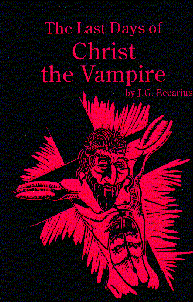The Marriage of Bette and Boo by Christopher Durang, directed by Perry T. Schwartz and offered by my favorite theater company in the Washington DC metropolitan area, Spooky Action Theater, is described as “Thirty years of divorce, alcoholism, madness and death in a wacky family world turned inside out.” It is also a tale of thirty years of serial pregnancy, psychological abuse, and Catholic ignorance, told in a series of flashbacks by Bette and Boo’s surviving son and a student of English literature, Matt. The play begins with the wedding ceremony of Bette and Boo, and what at first glance seems to be just another vapid middle class family scenario quickly morphs into a tactless farcical display worthy of an episode of South Park or Family Guy. In 1985 Durang was ahead of the curve. At first I had my doubts, but when Karl Hudlocke (Boo’s dad) referred to his wife Soot (no kidding) as “the dumbest white woman alive,” I knew I would love this play.
Bette begins her nightmare marriage as an airheaded Catholic girl, void of knowledge of the real world, dreaming about all the babies she wants to have. Decades of bitter experience that follow do not dissuade her from her illusions, i.e. her Catholic brainwashing. She is also unable to break Boo’s addiction to alcohol, itself propelled by her incessant urge to breed. Her sister Emily is a basket case constantly apologizing for her existence. Her other sister Joan is bitter and cynical . . . and seemingly always pregnant. Her father, Paul Brennan, has a speech impediment that will have you rolling in the aisles. Her matronly mother Margaret attempts to manage this menagerie. As for the in-laws, Soot Hudlocke is an addled doormat. Her husband Karl—my favorite character—is callous, cynical, tactless and totally outspoken in every situation without a tinge of self-consciousness. Then there is the doctor who keeps delivering Bette’s stillborn babies, and the pièce de resistance, the priest Father Donnally.
Time and hardship have a way of wearing down the naïveté of even the most clueless and wiping the forced smiles off the faces of even the most vapid. But the inability to learn anything from bitter experience takes a lot of effort, unless one’s faculties are disconnected from reality at the onset. This is where Catholicism comes in.
Father Donnally is an obtuse jackass, indifferently pushing the Church’s party line on these families without engaging them as real human beings, which they have been discouraged from becoming in the first place by their upbringing. One of the most hilarious, and perhaps the key scene in the play occurs at a marriage counseling retreat attended by both families in toto and conducted by Donnally. This moment reveals the disconnect between ideology and reality like no other. Donnally alternates between regurgitating the platitudes of church doctrine sans conviction and more convincingly imitating a slice of sizzling bacon. His audience listens without conviction. No birth control, no divorce, but also no thought is allowed by the Catholic Church. All resent and hate their lives and one another, but they are mentally and psychologically numbed and hence have no place to go. This is what happens to you when you’re not allowed to feel your own pain.
Father Donnally nevertheless has one moment of truth, which nevertheless fails to induce him to reflect on his theocratic propaganda. Donnally screams: why don’t people get to know the people they are marrying; why don’t they think about what they really have in common with the person they plan to spend the rest of their lives with? Why are people so stupid? He has posed the question of questions, but he will not stay for an answer.
You know, as comic as this play is, it’s not far removed from reality. I wasn’t raised like this, thank goodness, but I’ve known more dysfunctional Catholics than I can count. This dehumanization, this disconnect of one’s own emotions and thoughts from one’s reality, is one of the innumerable crimes the blood-drenched Catholic Church can never recompense.
The actors all did a superb job. How they could keep from breaking character while I and others howled in the audience is a miracle of the acting craft I will never understand. The set too was marvelous; I don’t know how this company does it without money. This is not establishment bourgeois theater for the upper crust; it’s always on the edge, and you should show up to support it.
Details:The Marriage of Bette and Booby Christopher Durang,
directed by Perry T. Schwartz,
with Katie Atkinson, Gerald B. Browning, William C. Cook, Joe Cronin, Mary C. Davis, Bill Gordon, Martha Karl, Ellen Mansueto, David Rothman and Mundy Spears.
The Black Box Theatre at Montgomery College, Corner of Philadelphia (East-West Hwy) & Chicago Ave., Takoma Park, MD.
June 5 – 29, 2008. Performances Thu – Sat at 8 PM and Sun at 7 PM.
My reviews of other Spooky Action productions:
Alice in Washington



